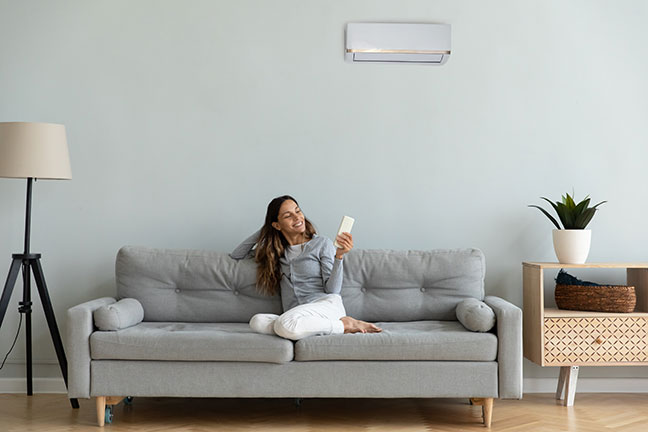You’re always looking for ways to save a couple bucks here and there, especially on everyday expenses such as household essentials. Those small savings really add up over time and help you keep more money in your pocket each month. The good news is, there are tons of easy ways to reduce spending on things like cleaning supplies, laundry detergent, paper products, and more without sacrificing quality.
In this blog post, you’re going to be discovering some of the best ways to save money on household items you’re using regularly. Ready to start saving money on stuff you’re already purchasing by making some simple changes to your shopping habits?
Buy Store-Brand Items
First — buying store-brand items is one of the easiest money saving tips to reduce your household costs. Store-brand items are typically made in the same factories as name brands items, just without that fancy labeling and marketing. So you’re frequently getting the exact same product at a fraction of the price. Things like paper goods, over-the-counter medicines, bottled water, and cleaning supplies are all great options for store brands.
Instead of dropping $4 on a name-brand bottle of ibuprofen, you could get the store brand for $2. Same pills, lower price. Need napkins, paper towels, or shampoo? Store brand saves you 30-50% off the name brands.
Same Product. Lower Price
Don’t assume store brand means worse product either. Many stores offer premium store-brand lines that are comparable to name brands. If you’re not happy with an item, most stores happily refund your money to reduce food waste.
Every dollar you save on household essentials is money that could go towards the exciting stuff in life. So head to your local grocery, supermarket or big box retailer and start searching for their store-brand alternatives.

Reduce on Impulse Purchases
Another of the biggest money drains is impulse purchases. Those small things you buy on a whim really add up over time. Here are some tips to help reduce impulse spending:
- Buy only what’s on your list: When you go shopping, stick to a list of what you actually need. Don’t just browse around the aisles. Get in and get out. This will minimize the temptation to toss extras in your cart.
- Avoid sales if possible: While sales can save you money on staples, they also encourage you to buy things you don’t need. If you do shop a sale, go in with a list and a budget.
- Unsubscribe from store marketing emails: Don’t let stores tempt you with coupons and special offers. Unsubscribe and avoid the temptation.
- Leave your credit card at home: Pay with cash or a debit card instead. This makes you more mindful of what you’re spending since you can see your money disappearing.
- Find alternatives to shopping: When you have the urge to shop, find another activity to redirect your mind like exercising, socializing, or pursuing a hobby. The urge will often pass.
- Wait before you buy: For non-essentials purchases, wait 24 hours before making a purchase. This can help you determine if you really need it and avoid regretting an impulse buy later. Many times you’ll find you don’t want or need the item anymore.
With some willpower and practice, overcome the urge to make impulse buys. Be more mindful of what you’re purchasing and find alternatives to shopping that don’t cost money. Your budget will thank you!
Make Your Own Cleaning Supplies
Making your own household cleaners is an easy way to save money around the house. You probably already have most of the ingredients on hand, so you can get started right away.
All-Purpose Cleaner
For an all-purpose cleaner, combine:
- 1 part white vinegar
- 1 part warm water
Mix in a spray bottle and use on counters, appliances, floors, bathrooms—anywhere you need to cut through grime and disinfect. The vinegar helps deodorize and slice into grease while being non-toxic.
Window Cleaner
To make streak-free window cleaner, combine:
- 2 parts water
- 1 part white vinegar
- 1 tablespoon cornstarch
Cornstarch helps prevent streaks. Mix well in a spray bottle and use with newspaper or microfiber cloths to clean windows and mirrors.
Toilet Bowl Cleaner
For toilet bowls, make a paste from:
- 1 cup baking soda
- 1/2 cup hydrogen peroxide
Apply with a toilet brush and scrub. Let sit for at least an hour or overnight, then flush. The baking powder scrubs and deodorizes while the peroxide disinfects and whitens.
Drain Cleaner
For clogged drains, pour:
- 1/2 cup baking soda
- 1/2 cup vinegar
Cover and let fizz for 15 minutes, then flush with boiling water. The chemical reaction can break up clogs and deodorize pipes. For tough clogs, you may need to repeat a few times.
Making your own eco-friendly cleaning supplies is simple, inexpensive, and better for your home and the environment. Give a few of these recipes a try and see how much you can save!
Saving on Your Utility Bills
Lastly — there are several ways to trim your energy, water, heating, and cooling costs each month. Small changes can add up to significant savings.
Turn off lights and electronics when not in use
It’s simple but effective when lowering energy costs. Turn off your lights, TVs, computers and gaming consoles when you leave a room or go to bed. Those red standby lights are sucking energy even when idle. Unplug electronics like phone chargers, laptops and gaming equipment when not using them as well. To take it a step further, invest in more energy efficient appliances!
Use fans instead of air conditioning
Run ceiling fans or portable fans to keep cool in the summer instead of cranking the AC. Fans consume much less energy compared to air conditioning. Keep your AC unit set at 78 F or higher – with every degree lower, your bill can go up 1% or more.
Wash clothes and run the dishwasher efficiently
Only run full loads in the dishwasher and washing machine. This helps save energy and money. Use the appropriate hot or cold water cycle settings for the load size. Air dry clothes instead of using the dryer when possible. If using a dryer, clean the lint filter first to improve efficiency.
Lower the water heater temperature
Keep your water heater set at 120 F. For every 10 degrees lower, you can save up to 5% on your utility bill. Consider turning it off completely when away from home for long periods.
Unplug devices when going away
Unplug electronics like TVs, gaming consoles, computers, and kitchen appliances when leaving for vacations or long weekends. They draw power even when idle or in standby mode. Use a power strip to easily cut power to multiple devices at once.
Making a couple small changes to your daily habits can have a big impact on your utility bills over the course of a year. Lower those bills and keep more money in your pocket each month. Every little bit helps!
Saving Money? How about FREE Mobile Service!
If you’re reading this blog, you’re likely trying to save some money. We are all about give you more money saving tips in this blog post — how about FREE hone service and data?
Partnering with government programs such as Lifeline & ACP, we’re able to offer unlimited mobile phone service data to low-income households or individuals. Whether you need to keep in touch with friends & family or you want to just save some money on your current plan, here’s what we’re offering:
EASY Wireless Unlimited Plan
- FREE Unlimited Data
- FREE Unlimited Talk
- FREE Unlimited Text
- FREE SIM Card Kit and Activation
- Choose to Keep Your Number or Get a New One
To start with EASY Wireless, apply online by clicking the below:
Start Saving Today!
Start Saving Today!
Or you can come to one of the EASY Wireless’s retail stores, where our customer service agent will help you apply for your benefits.


